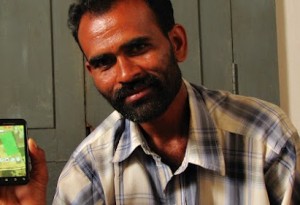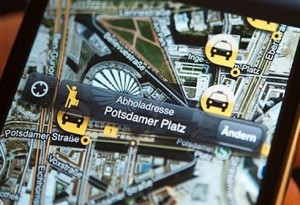 Bioengineers are getting better at replacing and enhancing body parts, but so far they’ve struggled to power implantable bionics without resorting to clunky batteries. But because blood carries energy in the form of electron-rich molecules like glucose and delivers it to all parts of the body, it is a tempting target for researchers. Chemist Evgeny Katz of Clarkson University, in Potsdam, N.Y., and his colleagues recently tested a new kind of electrode, which, when implanted in Neohelix albolabris snails and immersed in the snails’ blue, bloodlike hemolymph, produced a small, steady supply of electricity over a period of months. The researchers reported the work in March in the Journal of the American Chemical Society. Continue reading Snails in a Race for Biological Energy Harvesting
Bioengineers are getting better at replacing and enhancing body parts, but so far they’ve struggled to power implantable bionics without resorting to clunky batteries. But because blood carries energy in the form of electron-rich molecules like glucose and delivers it to all parts of the body, it is a tempting target for researchers. Chemist Evgeny Katz of Clarkson University, in Potsdam, N.Y., and his colleagues recently tested a new kind of electrode, which, when implanted in Neohelix albolabris snails and immersed in the snails’ blue, bloodlike hemolymph, produced a small, steady supply of electricity over a period of months. The researchers reported the work in March in the Journal of the American Chemical Society. Continue reading Snails in a Race for Biological Energy Harvesting
Category Archives: Formats
Designing a Smart-Phone Alphabet for the Illiterate
 On the road to Chennakeshavapura, a helpful sign on a stone identifies the village as CK Pura for short, but that message is lost on many illiterate residents. For them, reading and writing matters less than channeling enough water to their fields and growing enough peanuts to ride out the drought years.
On the road to Chennakeshavapura, a helpful sign on a stone identifies the village as CK Pura for short, but that message is lost on many illiterate residents. For them, reading and writing matters less than channeling enough water to their fields and growing enough peanuts to ride out the drought years.
In 2007, Swiss computer scientists and Indian agricultural scientists offered to install wireless sensors in the peanut fields at CK Pura and collect data the farmers might find useful for improving their yields. There was just one problem: few of the farmers could read the recommendations. Continue reading Designing a Smart-Phone Alphabet for the Illiterate
Deficit Theatre
After the curtain drew on the European fiscal pact meeting in Brussels on March 2, Spanish Prime Minister Mariano Rajoy announced that Spain would miss its European-imposed government budget deficit target of 4.4 percent of gross domestic product (GDP). Instead, he said, Spain’s national government would aim for a 2012 deficit of 5.8 percent of GDP, down from 8.5 percent under his predecessor in 2011. Some Spaniards described his announcement as an assertion of Spanish sovereignty and a rebuff of German Chancellor Angela Merkel’s continual demands for austerity. Outside observers speculated that Spain, the second-biggest economy of the so-called PIIGS countries, might lead a revolt against new fiscal rules. Continue reading Deficit Theatre
Dispatching the middleman
 MANY cabbies pay a dispatcher to keep the fares coming. The dispatchers are an information clearing-house, offering customers a central point of contact and offering on-the-move drivers directions to the nearest prospective passenger. But location-enabled smartphones in the pockets of more customers, and on the dashboards of more drivers, offer a tempting way to skip the middleman. If, that is, customers and drivers can find a handy way to share their locations.
MANY cabbies pay a dispatcher to keep the fares coming. The dispatchers are an information clearing-house, offering customers a central point of contact and offering on-the-move drivers directions to the nearest prospective passenger. But location-enabled smartphones in the pockets of more customers, and on the dashboards of more drivers, offer a tempting way to skip the middleman. If, that is, customers and drivers can find a handy way to share their locations.
Enter the app developer. In Sweden, Germany, Spain and Britain this new breed of middleman has released a slew of taxi-finding apps in recent years. When a customer requests a taxi, the applications ping the nearest available driver. He can accept the fare, paying a small commission, or skip it. Some applications offer customers an estimate of the fare, ratings of potential drivers or, once a match is made, a moving blip on the map, showing their drivers’ progress. All this is especially useful for visitors unfamiliar with a city or late-night revellers uncertain of their street address.